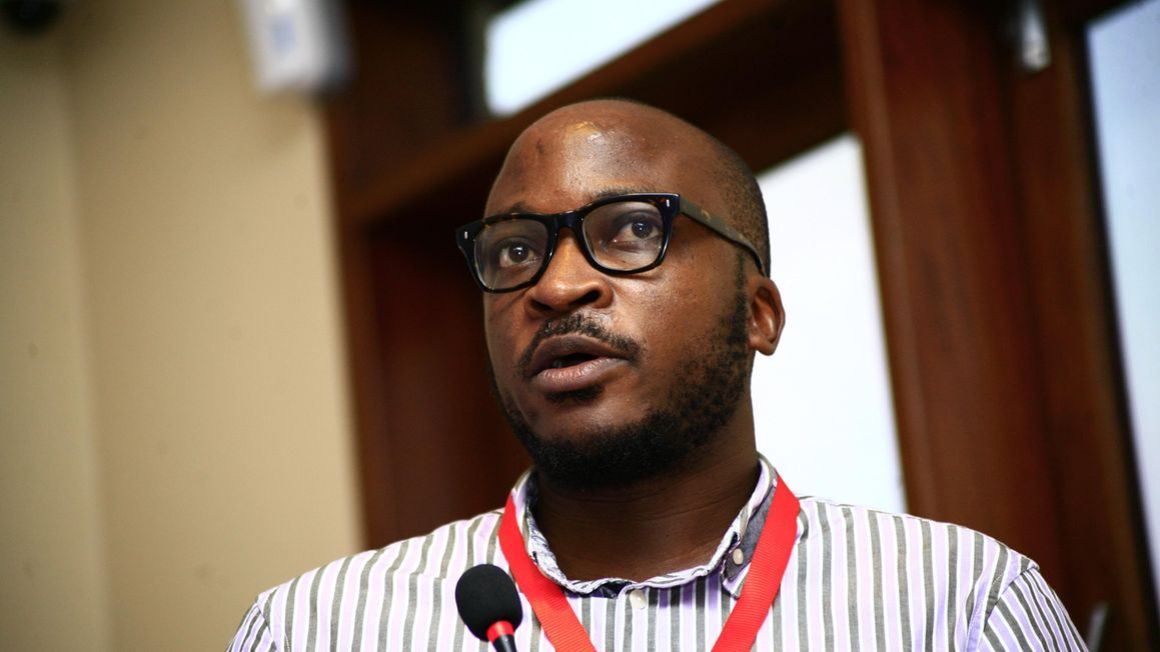At what point does a society lose all sense of empathy? Are we there yet?

Daniel K. Kalinaki
What you need to know:
How it used to be. Everyone knew everyone. Everyone had a responsibility over everyone. Everyone cared for everyone. No crime, once discovered, went unpunished. A complete stranger, having reached the conclusion that your conduct was unbecoming, would summarily introduce your face to his open palm, each slap punctuated with a warning “Not. To. Do. It. Again!”
We were children of community. Some of us lived in the city with its fast life and night-lights, others in the rural areas where darkness brought out night runners and wildlife. It didn’t matter: A village raised us all.
The privileged ones - children of civil servants, military officers or businesspeople - were carted off to school most mornings by automobiles that unfailingly always stopped to pick up friends and total strangers on the way.
I do not, for the life of me, remember the Old Man driving past a pedestrian or commuter waiting for public transport. Often it didn’t matter whether we had space in the car or not. In fact, on at least one occasion, I remember being moved to the open cabin of the pick-up truck to make way for an elderly couple - complete strangers - and then having to brave a heavy downpour on the long journey.
Others walked to and from school. The return journey was more enjoyable, lazy walks kicking cans down the road, detours into impromptu roadside football matches and most memorably, the snacks; sometimes sinfully delicious pancakes, sometimes fried Nile Perch whose aroma lingered so long on our fingers, we worried we’d lose the tips to the rats that came out to maraud at night. During inclement weather, bus and matatu drivers would stop and allow us to squeeze in for a free ride on the kameeme, the hot metal sheet engine cover on which we shifted from buttock to buttock to prevent spontaneous combustion and reduce the no-so-infant mortality rate.
Holidays and weekends, whether in the city or in the village, were similarly communal. You woke up, rushed through your chores, and then disappeared into the neighbourhood when no one was looking. Lunch came when and where it came. Whichever house we ran into when hunger pains and the sweltering afternoon sun became unbearable always seemed to have enough food for all, despite the deprivations enforced by war and economic collapse.
Everyone knew everyone. Everyone had a responsibility over everyone. Everyone cared for everyone. No crime, once discovered, went unpunished. A complete stranger, having reached the conclusion that your conduct was unbecoming, would summarily introduce your face to his open palm, each slap punctuated with a warning “Not. To. Do. It. Again!”.
Running home in tears to tell the Old Folk that so-and-so had beaten you was never advisable: The expected sympathy was invariably and unfailingly subsumed in the ensuing home-grown and extremely violent form of justice.
We didn’t realise it then but that grooming taught us certain values. Like empathy and generosity, for example. We learnt to share, to forgive, and the value of saying simple things like sorry, please, excuse me, thank you. We learnt to hold doors open, to queue up, to let others have the last piece of cake, to not put the salad and soup and bread and mains and dessert on the same plate. It taught us humility and humanity.
So how did we go from having so much amidst so little to having so little amidst so much? Some of the reasons are easy to see, like the dislocation caused by the Aids epidemic, the LRA/NRA war in northern Uganda, and the structural adjustment programme.
But there is something else, something much harder to define, that has broken the cord of social grooming. An entire generation has grown up parentless, valueless and mannerless. Even where parents are alive, they are not present, permanent participants in capitalism’s rat race. So we can partly explain the angst to the breakdown of the village, as it were, and the man-eat-man nature of urban life. Want and envy easily morph into anger and worse.
But there is another side to it. Many people start out well intentioned then, seeing all the injustice and inequity around them, become rude and cynical. They watch their loved ones die in hospitals without drugs, or years pass by as they pound the streets in vain pursuit of employment, their transcripts and technical know-how no match for the headed paper notes that announce their technical know-who.
A small injustice here, a small injustice there, a crime here that goes unpunished, a dose of impunity there, and soon the basic values that hold society together start fraying. We become angry and militant. The haves build taller walls; the have-nots build longer ladders. We stop talking to each other and start shouting at one another.
Soon the tragedy and misfortune of some becomes a source of mirth for another. Schadenfreude becomes a national pastime. We are no longer raised by the village but by wolves. This land is broken. This society needs healing. Urgently.
Mr Kalinaki is a journalist and a poor man’s freedom fighter. [email protected]
Twitter: @Kalinaki.


